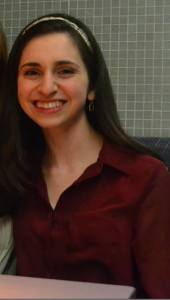Raising Questions about Mr. Harriton

While this piece does contain valuable content and raises noteworthy questions about Mr. Harriton that our school community should consider in the future, I find the timing of this piece irresponsible and feel that it should have been published after the fact out of respect to those in the show and those who have worked hard to make this event as special as possible. The article was not meant to undermine the efforts of Harriton Student Council in any way, but I understand how it could be perceived in that light and would have done things differently if I was given the opportunity. However, one can argue that it is proper journalism ethics to produce content while relevant, so I understand (yet still strongly disagree with) the decision to post the article at this time. – Brandon Lapensohn, Executive Editor
Readers, please note that our main goal in writing this article was to initiate discussion. We had no intentions of having this article hurt anyone’s feelings, especially those who worked so hard to make Mr. Harriton as fun and charitable as it is. Our decision to repost this article so quickly was one we made after extensive discussion and consideration, and we ultimately felt that the concerns raised in this article are important enough that it is our responsibility as a newspaper to propose them. – Allison Schwartz, Executive Editor
With Mr. Harriton fast approaching, we find ourselves both thrilled for the show and a bit nostalgic it will be our last time in the audience. As the most anticipated school event of the school year, Mr. Harriton captures all we have hoped high school spirit could be; it is terrifically engaging, utterly hilarious, and arguably the most vivid example of our “Harriton community.” This ironic send-up of a female beauty pageant features around ten upperclassmen boys all competing for the crown and prestige of being titled “Mr. Harriton.”
Even more exciting than the amusement of watching your classmates dance (or attempt to dance) is the astounding Harriton camaraderie that arises from the event. We are a school notorious for having very little traditional school spirit, so the annual sold-out audience is truly impressive.
The abundance of Harriton students, staff, and families also drives astounding donations to the Lower Merion Scholarship Fund, Leukemia and Lymphoma society, and this year the Mr. Marrone fund; the recipients of the event’s proceeds. Last year, Mr. Harriton raised over $13,500 for charity with a full house, and the outlook for this year’s event looks just as bright.
Yet, even with all our excitement and anticipation in seeing what “Time Travel” has in store this year, we cannot help but wonder whether aspects of the event poorly reflect and affect our culture at large. Why are the girls who accompany the contestants named “escorts”? Why are the male contestants expected to display a particular set of qualities to “win,” when our school typically emphasizes individuality? Why do contributions to “money buckets” play a role in who wins the title? Because of the show’s astounding popularity, discussion regarding these controversies does not arise frequently within our Harriton community, but that does not mean that these aspects of the event do not exist nor require further scrutiny. In fact, our neglect in discussing these details may be what allows them to impact our societal expectations and views regarding gender roles and wealth.
Perhaps the most conspicuously controversial aspect of the show is its use of the term “escort” to describe the girls who accompany male contestants on stage. This Friday marks the seventh annual Mr. Harriton event, and the fact that this misogynistic phrasing has not been rectified yet baffles us. The word “escort” is blocked on our school laptops, making it truly ironic that we find it appropriate to describe our teenage classmates and friends with this term that is synonymous to “prostitute.” The escort name and innuendo is even further perpetuated by the fact that these girls’ roles in the show are to merely support their male counterparts and assist them, particularly through soliciting money from the audience during intermission.
Some argue that this label is not that big of a deal. One former Mr. Harriton escort noted, “Honestly, as an escort, I didn’t really care – it was just a name. And the show is about the boys anyway.” Another current escort said, “I think it’s kind of funny that [escort] is our official name.” The fact that students take this name in jest is a debate within itself, but simply stated, the underlying message this title sends is one of female submissiveness, and the reference is too obvious to be ignored any longer. As another student said, “The name escort doesn’t support the idea that Harriton tries to teach women about being strong and confident leaders.”
As the show is often perceived as a parody of a standard beauty pageant, you would think every gender stereotype – of both female and male – would automatically be overturned, yet inadvertently many still exist. Throughout December, students interested in participating in the event went through an extensive auditioning process, and were chosen to participate based on talent, energy, and ability to entertain. During the performance itself, contestants are expected to demonstrate utmost enthusiasm through choreographed dances, confidence through the question and answer session, extreme proficiency through their talent portions, and captivating charm through their pick-up lines. Only if such standards are met will an individual be worthy of being crowned Mr. Harriton. Not to say that these characteristics are not respectable, but in a school arena in which we promote individuality and distinctiveness, it seems somewhat odd to think that all contestants are working towards a single, “ideal” man that supposedly represents the school, as hinted by its name.
Equally as concerning is the fact that money plays a role in whom is crowned. As contributions to the Mr. Harriton intermission “money-buckets” actually influence the results of the competition, we cannot help but question what message that conveys. Are wealthy contestants more deserving of the title? Do the girls who carry these money-buckets influence how much money they solicit through their reputation, or even appearance? Do contestants with wealthier friends or family have a direct advantage? Though this aspect does not immensely influence who is crowned, the fact that it plays a role at all propagates the notion that the wealthy deserve more, especially in a competition in which winning is supposedly based on talent.
With all of this said, we, of course, fully acknowledge that the contestants and their fellow female accompanists do not enter Mr. Harriton actively thinking about these societal concerns and, therefore, agree to join. We also do not want to insinuate that the diligent organizers of Mr. Harriton intentionally promote ideas of sexism and financial discrimination.
As mentioned, Mr. Harriton inspires an astounding amount of positive energy within Harriton, and this should not go unnoticed. Whether it be the show’s ability to bring our somewhat detached community together, its philanthropic aspect, or simply the funny moments throughout the show, there are many reasons the community, ourselves included, rightfully loves this event.
But, if we, as a school, continue to blindly accept the show’s discriminations without at least talking about these concerns, we accept them and their implications to be true. Are we led to believe that different sexes occupy certain roles? Does the existing set up of this show imply that money will guarantee victory? Are these implications appropriate in a school setting? These questions have not yet fully been answered – and that only means it is time for the discussion among the Harriton community to begin.
Hopefully this discussion will initiate progress towards eliminating the stereotypes that are subtly portrayed in Mr. Harriton. Of course, such “change” can be as straightforward as merely altering the name “escort” to a term like “partner,” or as complex as reevaluating the so-called criterion for Mr. Harriton contestants. In either case, however, it is acknowledged that discussion and debate among our school students and staff will initiate some sort of forward movement in creating a more progressive Harriton community.

As a senior this year, Allison Schwartz is very excited to entering her fourth year on the Banner as Executive Editor. Though she has written for almost...

As a senior this year, Sitara Soundararajan is entering her fourth year as a writer for the Banner. She is looking forward to serving as the Opinion...

